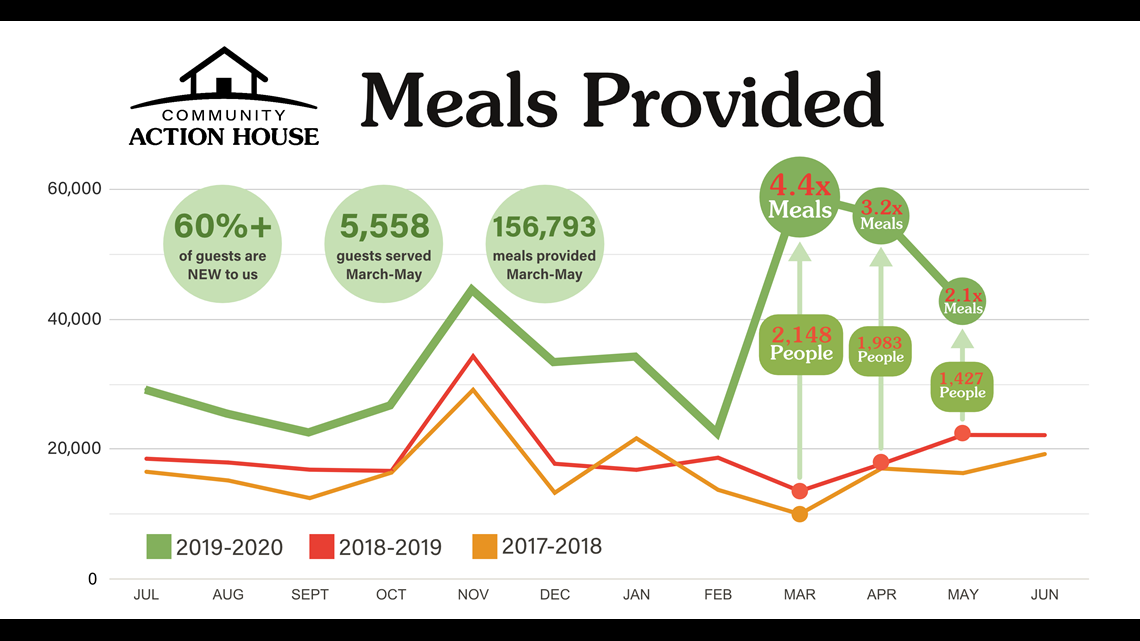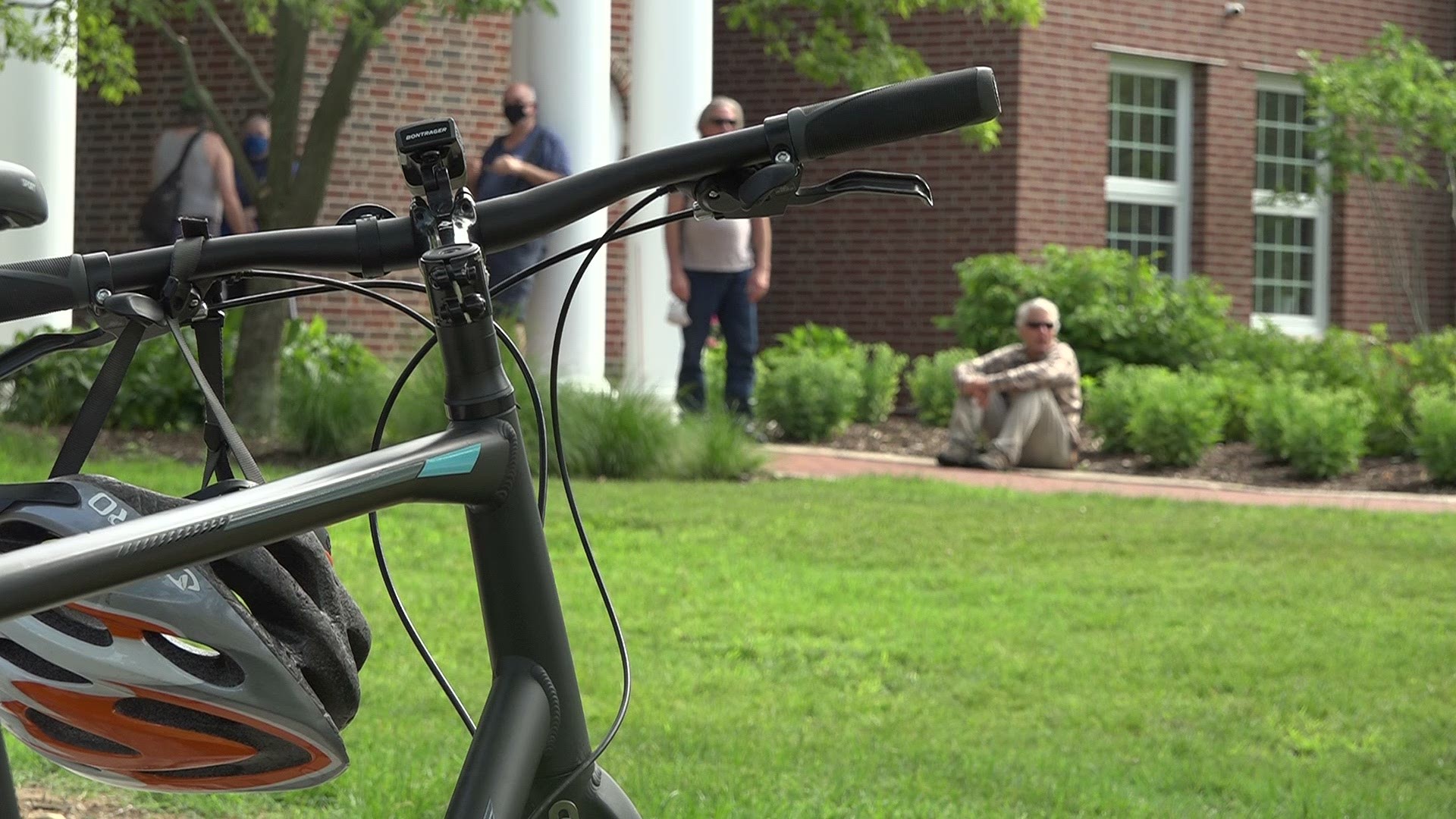HOLLAND, Michigan — The need for food assistance by residents in the Holland area tripled in the first several months of the COVID-19 pandemic, community leaders said Tuesday.
"The folks we serve at the best of times are living in the financial margins," said Scott Rumpsa, executive director of Community Action House, a nonprofit that provides resources to under-served lakeshore communities. "They're working, holding together just above the poverty line. Now, when they lose work, they don't have the financial reserve."
From March to May, Community Action House provided 156,793 meals through its food pantry and the community kitchen at Western Theological Seminary, according to the nonprofit's data.
"In most three-month periods last year we would've provided about 50,000 meals," Rumpsa said. "We get loads of community donations, but, honestly, we've had to step up our food purchases in a way we never had before."


RELATED: 13 Food for Families
CAH purchased around $50,000 of food in April during Gov. Gretchen Whitmer's stay-at-home order. Families also packed food boxes at home for the organization's "Stay Home, Fight Hunger" initiative.
"We encourage people not to bring their families [to the community kitchen]," Program Manager Felicia Thompson said. "Sometimes, I am serving six to eight meals at a time. You might not see as many people, but our meal count is still up there."
The food pantry, located at the Community Action House building on W 14th Street, is now a drive-thru. Recipients are scheduled every five minutes during active hours, said Melissa Roessing, food and connections programming director.
"We've formed new partnerships with a number of new places to make sure we've got...enough on hand, so we never have to say no to anybody," Roessing said.
RELATED: Hunger remains top concern for West Michigan families during pandemic, not easing up any time soon
Despite need dropping slightly as the state reopens, CAH needs more food and monthly financial donations to prepare for a possible spike in August, Rumpsa said.
"If the supplemental unemployment benefits do run down, some of our families that are relying on us for assistance will see their family incomes cut by 60 percent overnight," he said. "That would mean, again, a surge in support and service needed by groups like ours."
If you would like to donate to help West Michigan families, click here.
RELATED VIDEO:
More stories on 13 ON YOUR SIDE:
- VERIFY: Face mask exemption cards are fake
- Tulip Time reaches 80% of fundraising goal
- Muskegon police responds to dozens of fireworks noise complaints
- West Michigan home buying soared in May, expected to withstand COVID-19
- Michigan stalls at Phase 4 as COVID-19 cases rise statewide, biggest increases in Grand Rapids and Lansing
►Make it easy to keep up to date with more stories like this. Download the 13 ON YOUR SIDE app now.
Have a news tip? Email news@13onyourside.com, visit our Facebook page or Twitter. Subscribe to our YouTube channel.


